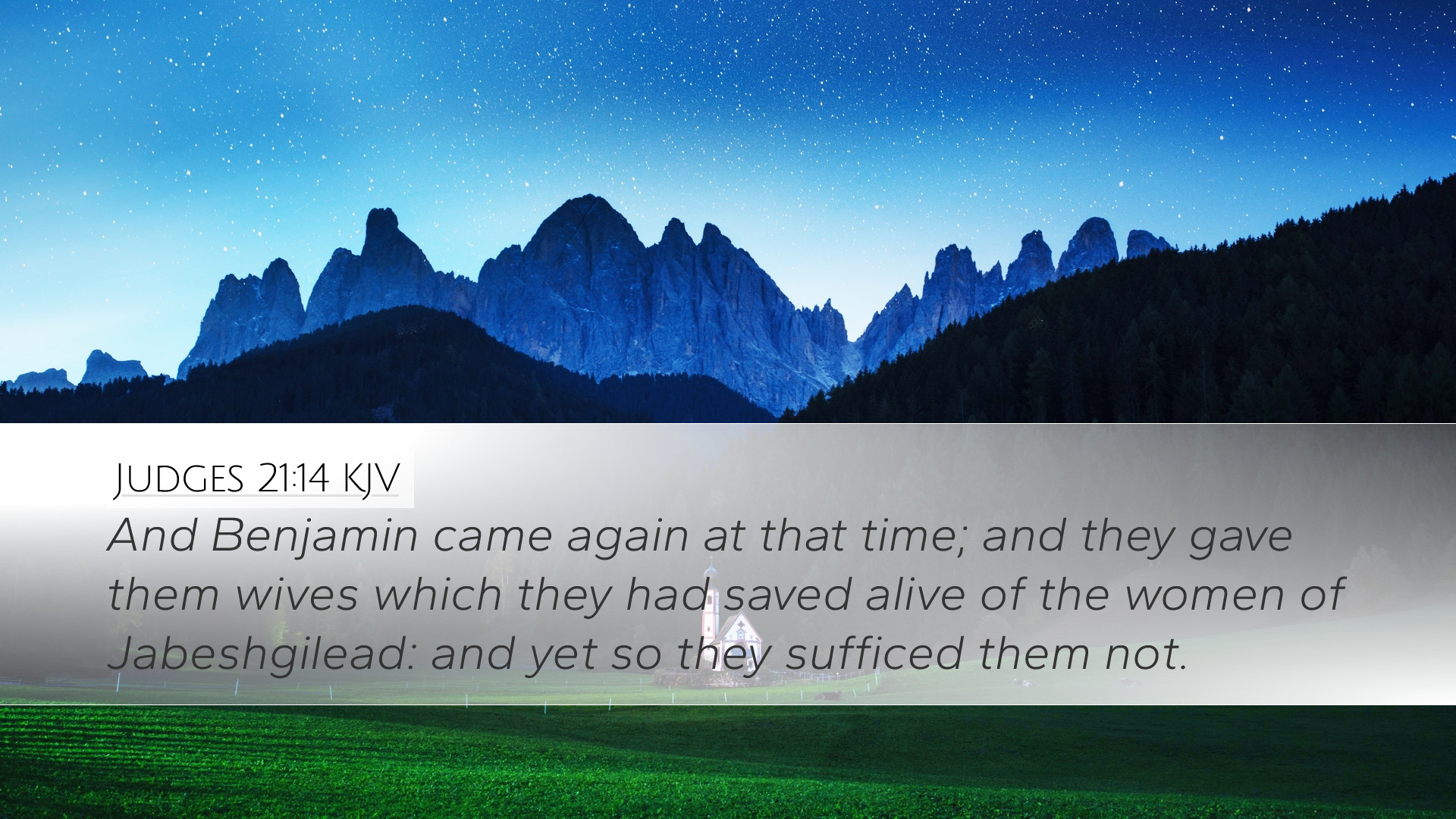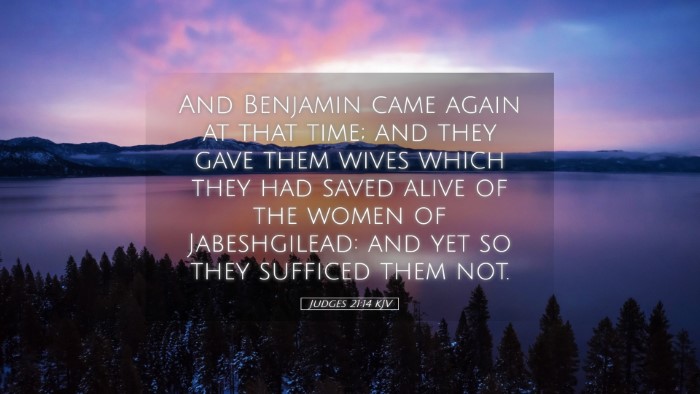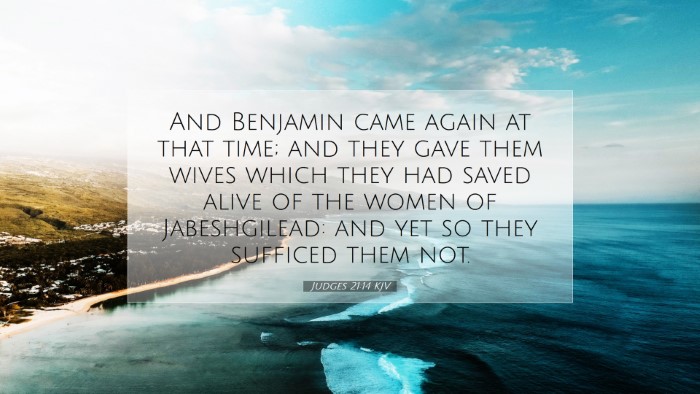Commentary on Judges 21:14
Judges 21:14 states: “And Benjamin came again at that time; and they gave them wives which they had saved alive of the women of Jabesh-gilead: and yet so they sufficed them not.”
This verse captures a significant moment in Israel's history, particularly for the tribe of Benjamin, after a devastating civil conflict that had led to near annihilation of the tribe. This commentary seeks to explore the implications of this passage through various lens provided by esteemed commentators.
Historical Context
The events surrounding this verse occur after a catastrophic conflict that arose from the incident in Gibeah, which led to a war involving the other tribes of Israel against Benjamin. Matthew Henry emphasizes that what followed was a desperate situation for the Benjamites, resulting in severe loss and the near extinction of their lineage.
Theological Significance
Albert Barnes notes that this episode reflects God's providential care despite human sinfulness. The attempts to provide wives for the Benjamites underscore the importance of lineage and community in ancient Israelite society. The tribes recognized the gravity of potential extinction and sought to preserve the tribe through any means available.
Divine Providence
Adam Clarke interprets the situation as indicative of God’s mercy amidst judgment. While the Benjamites faced the consequences of their actions, the willingness of the other tribes to provide wives highlights a redemptive theme. Clarke advocates that even in dire circumstances, there is a narrative of hope and continuation of life.
Moral and Ethical Implications
This passage raises complex questions about ethics in desperate situations. The decision to offer the surviving women of Jabesh-gilead as wives can be seen as a morally ambiguous act. Matthew Henry comments on the moral dilemmas faced by the tribes, suggesting that such actions, while undertaken for good reasons, still reflect the unpredictability of human governance without divine direction.
- Preservation of Life: The preservationist approach taken by the tribes of Israel can lead to discussions of ethical engagements in times of war and conflict.
- Covenantal Responsibilities: The covenant relationship between the tribes necessitated certain actions to maintain communal identity and integrity, as is echoed throughout the narrative.
Reflection on Community and Kinship
The act of providing wives is emblematic of deeper kinship structures within Israelite society. Albert Barnes elaborates on the significance of familial bonds, emphasizing that the tribe of Benjamin needed women to fulfill God’s mandate of increasing and multiplying as ordered in Genesis.
Kinship and Continuity
Henry remarks that the tribal structure in Israel was intimately connected to their identity as a people called by God. This urgent attempt to secure wives for the Benjamites translates into the broader theological concept that all humanity is called to continue in relationship with God, underscoring the communal aspect of faith.
Contemporary Application
For pastors and theologians, Judges 21:14 is rich in applications concerning forgiveness, mercy, and restoration. Adam Clarke encourages readers to reflect on how communities today address the fallout from conflict and sin. The need for reconciliation and the commitment to rebuild are foundational themes that emerge from this passage.
- Restoration of Relationships: Modern communities can learn valuable lessons on the importance of restoring relationships that have been damaged by sin and conflict.
- Divine Restoration: The hope found in this passage reinforces the concept of God’s ability to bring life out of death—very applicable to spiritual and community rejuvenation.
Conclusion
Judges 21:14 serves as a reminder of the complexities of human relationships, the dimensions of divine providence, and the importance of communal ties in times of crisis. By examining this verse through the lenses of Matthew Henry, Albert Barnes, and Adam Clarke, we uncover layers of theological reflection that challenge and inspire both individual and corporate faith journeys.


